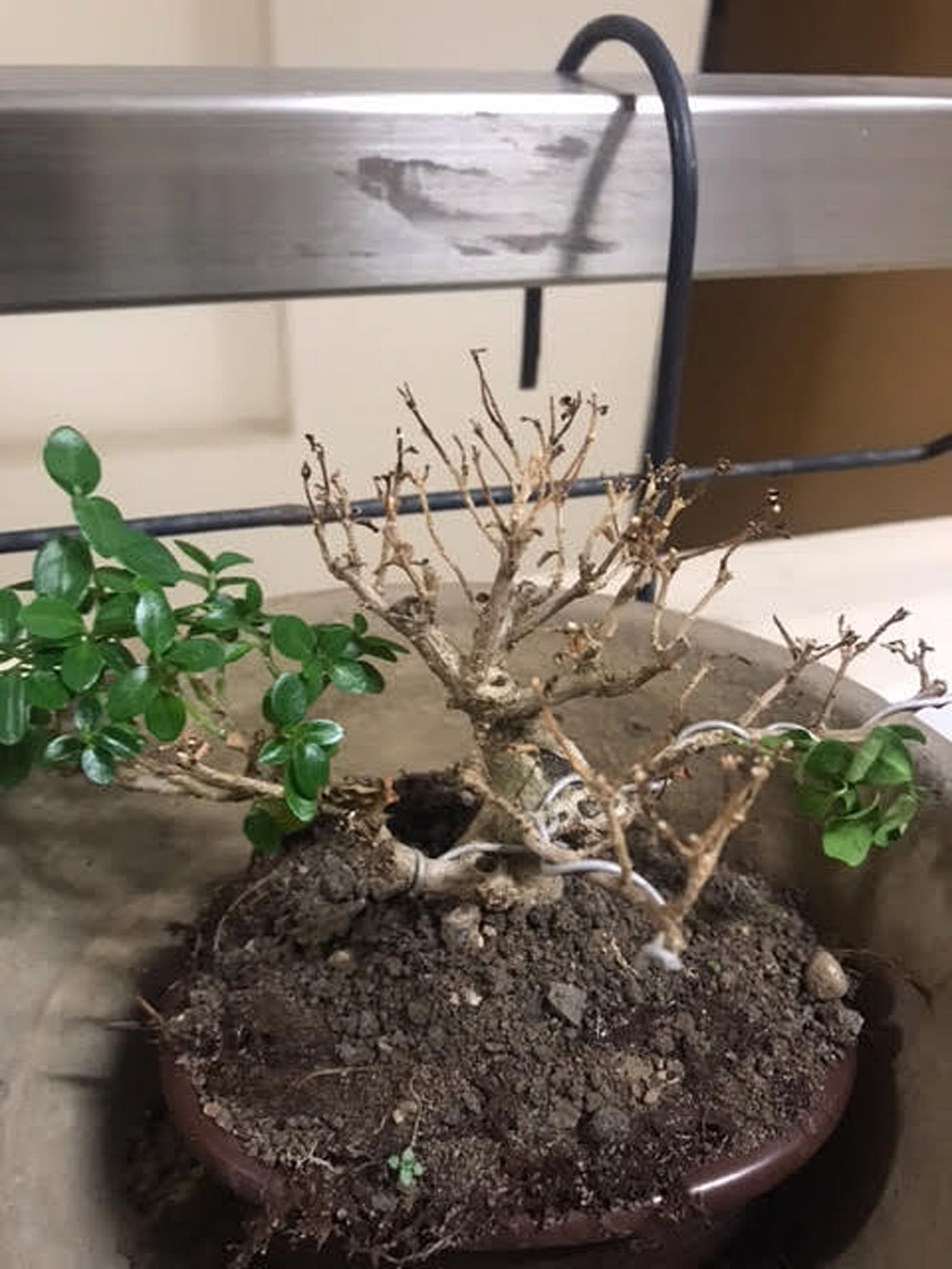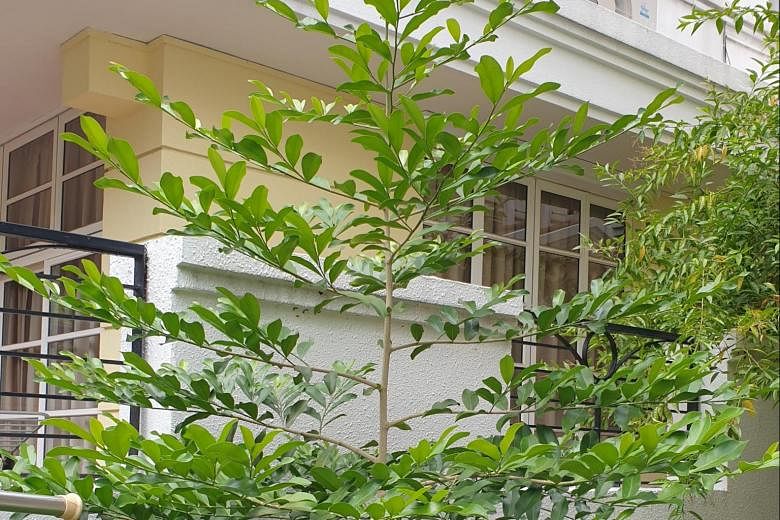False lime a coastal species native to Singapore
What is this plant growing in my garden? It is more than 2m tall, has stayed healthy with regular watering and shows no signs of infestation. How do I take care of it?
Shagufta Naz
The tree is likely to be Suregada multiflora, a native species of Singapore that grows in coastal areas. Its common names are False Lime and Limau Hantu.
This species is often grown in local landscapes and can be a small tree or a big shrub, with a tiered growth habit. Its flowers are pollinated by insects and its seeds are probably dispersed by birds via droppings, which is probably how this tree came to be in your garden.
Batoko plum a popular landscape tree with edible fruit

I found this tree at a public playground in 3G @ Shunfu Park. Its tiny fruit were green and slowly ripened to red. Are they edible and safe to touch?
Helen M.L. Lim
The tree is botanically known as Flacourtia inermis. It is a fruit tree that is commonly known as Batoko Plum, Lobi-lobi, Plum of Martinique and Thornless Rukam. Its fruit are very sour and can be made into tarts, jams, syrup and preserves with the addition of lots of sugar.
It is a popular tree for ecological landscapes in Singapore, as the young leaves serve as food for caterpillars of the Leopard and Rustic Butterflies. With their bright orange hue, the young leaves also add colour to the landscape.
Bonsai candidate needs light to grow well

I received this plant as a gift. At first, most of the leaves dried out. It has been more than two months and only one side of the plant is growing. Why are the other branches not growing?
Annie Teo
Your plant is a common bonsai candidate. Its botanical name is Premna microphylla and commonly known as Japanese Musk Maple or Japanese Neem Tree.
The dried branches may be dead. You can try to bend them. They are dead if they are dry to the touch and snap easily.
This plant needs direct or filtered sunlight for at least six hours a day, without which it will decline. Water it evenly to prevent it from drying out.
Thai basil is infested with lace bugs

Some leaves on my Thai basil plant are wilting and have black and greyish spots. I also see tiny black insects on the leaves. Are there any plants I can cultivate to attract helpful predators?
Toh Ee Loong
Your basil plant is infested with lace bugs, which suck sap from the foliage and give your plant its spotted appearance.
Lace bugs are difficult to manage using common organic pesticides. You can try using pyrethrins or chemical pesticides like cypermethrin, which you can buy at plant nurseries. Repeated applications are necessary to manage the population.
When you use such pesticides on edible plants, note the withholding period, which refers to the duration of time that needs to elapse before plants can be harvested for consumption.
Pomelo infested with scale insects

I discovered several yellowish brown spots on the stem and leaves of my pomelo plant. How do I remove the spots?
Geraldine Choy
The brown spots appear to be scale insects, which are sap-sucking pests. They can be removed by gently scratching the spots off with your fingernail.
To manage a minor infestation on a single plant, you can remove the insects by using a soft toothbrush. Then spray a diluted solution of summer or neem oil on the plant to suffocate any remaining pests.
Repeated applications are necessary to keep the population under control. Follow the instructions on the product label and test the pesticide on a small part of the plant to ensure it does not have an adverse reaction.
Place the plant in a sunny spot for healthy growth.
- Answers by Dr Wilson Wong, an NParks-certified practising horticulturist, parks manager and ISA-certified arborist. He is the founder of Green Culture Singapore and an adjunct assistant professor (Food Science & Technology) at the National University of Singapore.
- Have a gardening query? E-mail it with clear, high-resolution pictures of at least 1MB, if any, and your full name to stlife@sph.com.sg. We reserve the right to edit and reject questions.
Free online gardening talks
1. Edible Water Plants For Your Home Garden
When: Sept 25, 2 to 2.45pm
Info: Register at the NParks website
2. Gardening Q&A
When: Sept 25, 3 to 3.45pm

